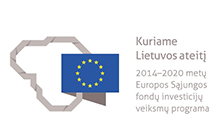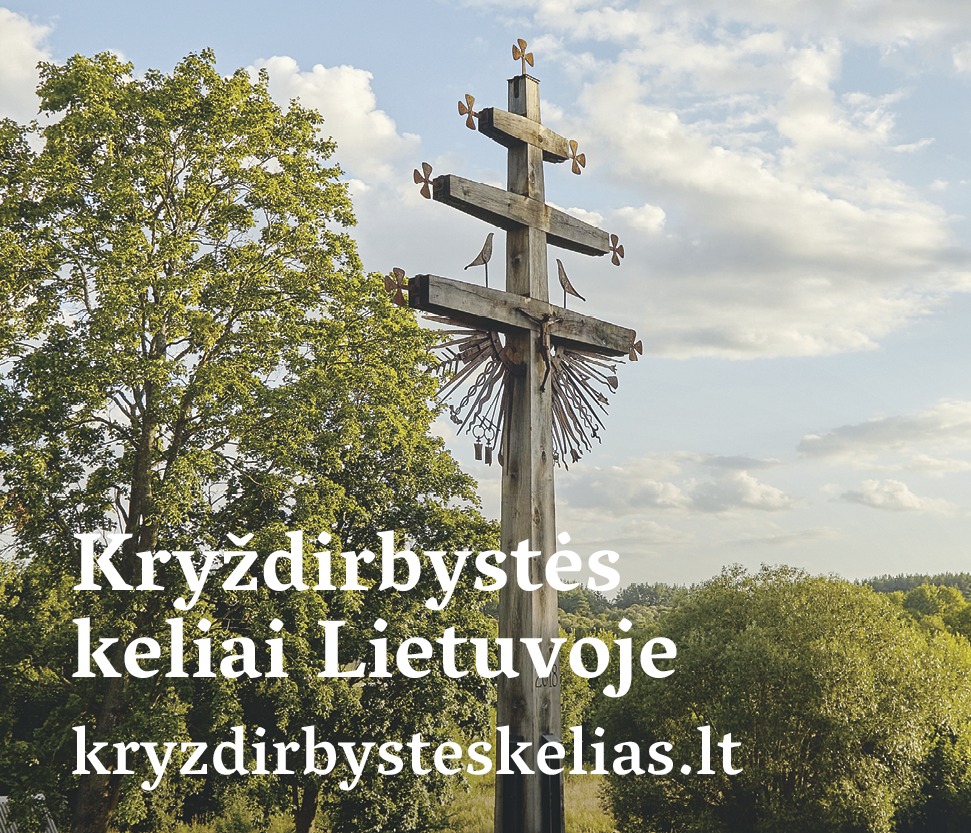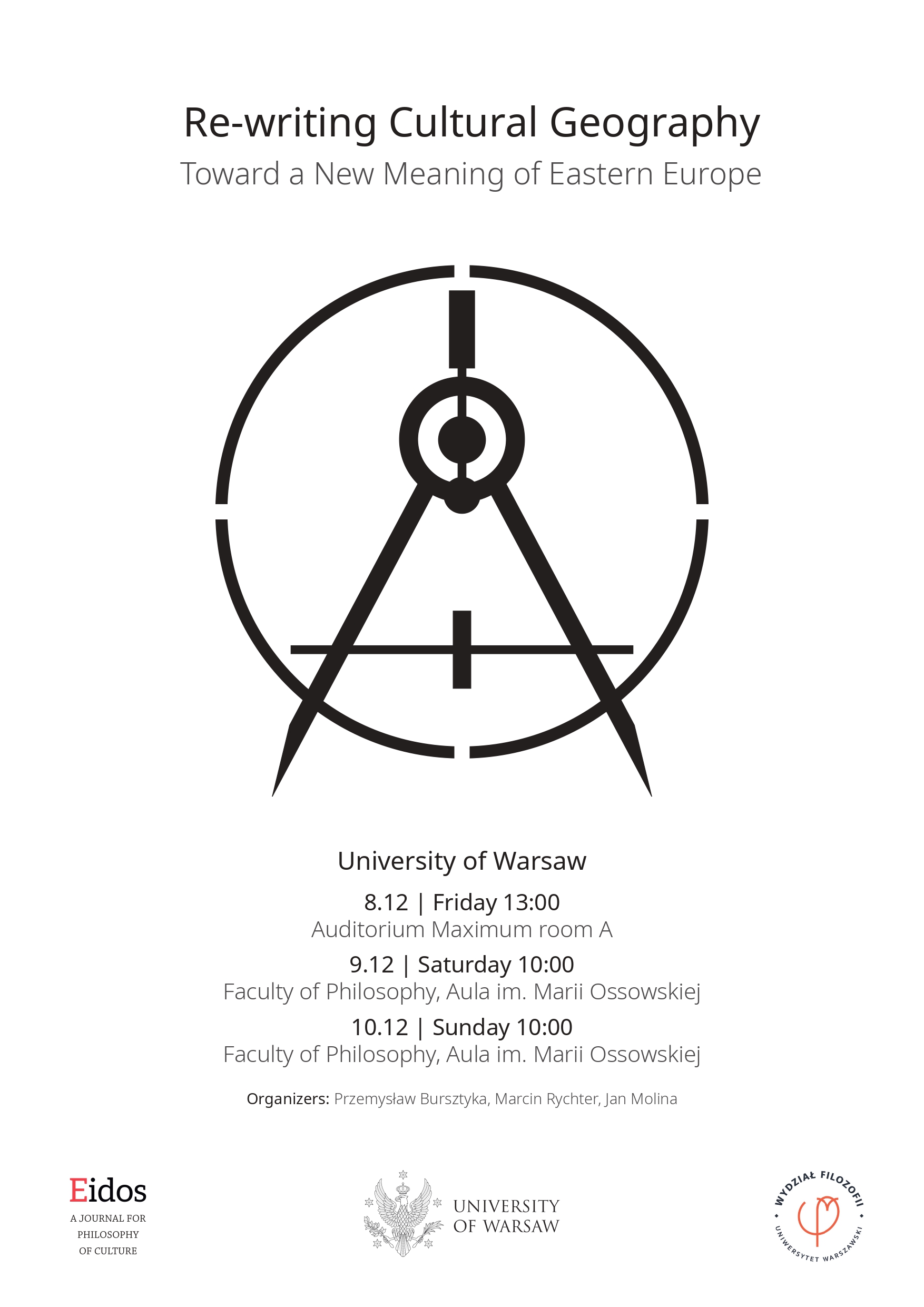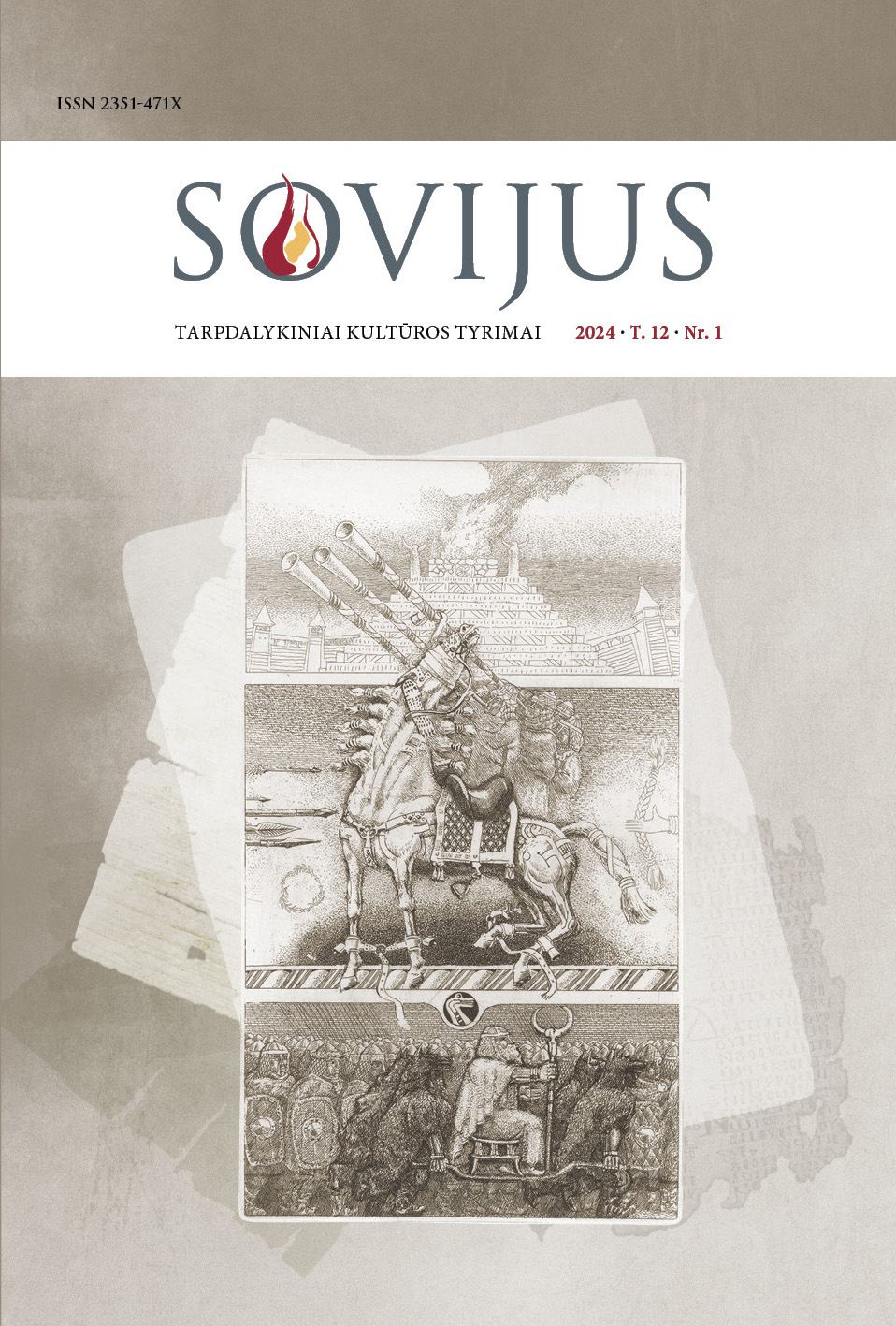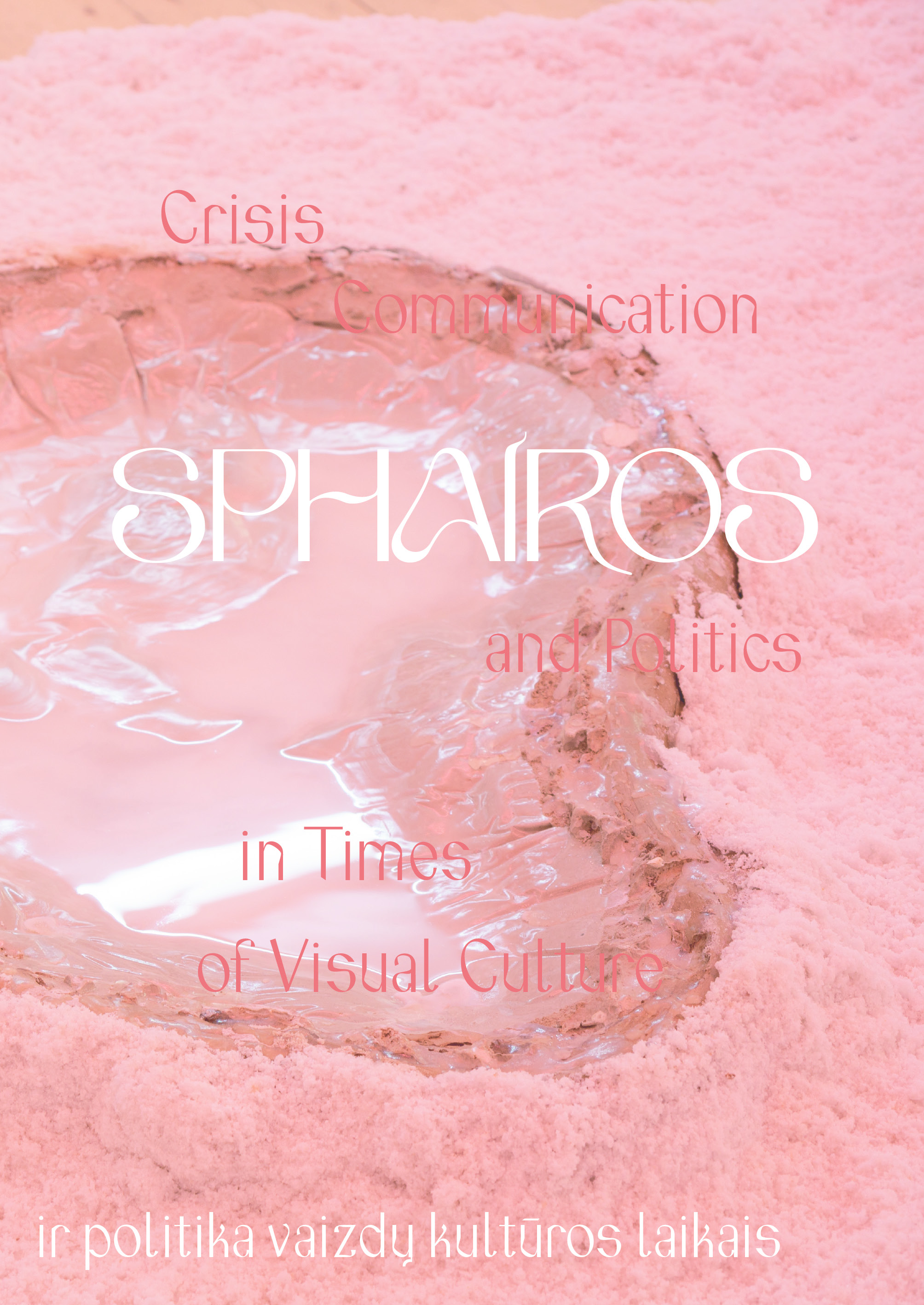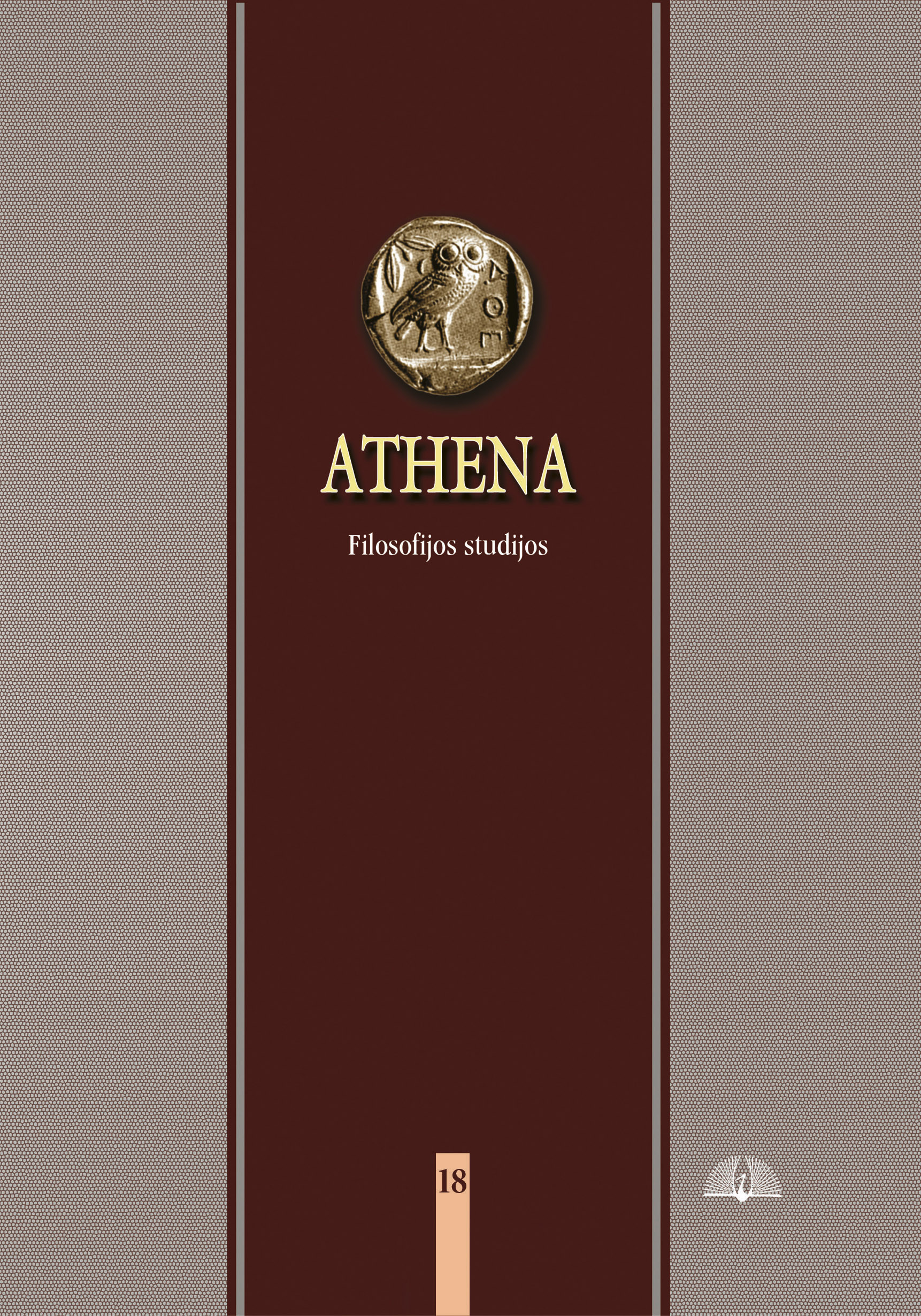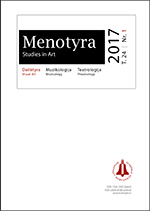- Home
- Activities
- Research directions and themes
Research directions and themes
The directions of research activities of the Lithuanian Culture Research Institute as approved by the resolution of the Government of the Republic of Lithuania No 1792 of 23 December 2009:
1.Research on Lithuanian cultural heritage and art history.
2.Interdisciplinary research on Lithuanian culture.
3.Research on the history of Lithuanian philosophy and contemporary Lithuanian philosophy.
1.Research on Lithuanian cultural heritage and art history
The object of the research is the religion (gods, cult) of the Lithuanians, Prussians, Jotvingians and other Balts, the history of this religion as presented by its written sources (with a separate analysis of the reliability of annals, chronicles and documents), and by various ethnological, linguistic and archaeological evidences. The relevance of the topic is based on the origins of Lithuanian culture in the ancient Baltic culture. It is also of international relevance for the general study of ancient European cultures.
Theme supervisor: E. Usačiovaitė
The object of research is the legacy of Lithuanian personalities, state, public and private institutions and organisations, academic and creative communities. Objective: to analyse and evaluate the significance of the most important Lithuanian personalities of the 19th and 21st centuries, the organisations and institutions they founded, for the development of culture and science, and to determine their educational contribution to the development of values of the society. The research will contribute to the development of Lithuanian studies and provide new assessments, it also contributes to the implementation of European Commission's objective to update the research on the so-called "third culture", i.e. the processes of interaction between science, art and society, their origins and changes, which makes the topic promising from the point of view of its complexity.
Theme supervisor: R. Juzefovičius
The object of research is the development of Lithuanian art in the 16th-20th centuries, analysed in the context of society, culture, politics and ideology.The research covers the artistic life of Lithuania in the period of Commonwealth of Lithuania and the modern era, the role of patrons, social and ethnic groups, the role of the state, and the impact of wars and historical upheavals on the process of creating art. The theme also includes research on visual culture, applying new research methodology on the production, dissemination and consumption of images to the analysis of Lithuanian art history.
Theme supervisor: L. Surgailienė (Laučkaitė)
The object of the research is church art and architecture, and folk art. The objectives of the work are: to thoroughly investigate the history, heritage, iconography, social factors, the interrelationship between devotional traditions and religious art, to analyse the contribution of sacred art to Lithuanian culture; to examine the relationship between professional and folk art, the problems of interaction and exclusion between art and craft, and to investigate the work of artists, craftsmen, and folk masters. The objectives of the work are to carry out a comprehensive expertise of Lithuanian churches' heritage objects, to consistently collect data from archival and art sources, to systematize the collected material, to interpret and present to the public the heritage of church and folk art. The main results of the team's work are the publication of the scientific multi-volume "Lithuanian Religious Art" and the book series "Religious Studies of Cultural Heritage".
Theme supervisor: dr. D. Vasiliūnienė
The aim is to carry out fundamental research in various areas of Lithuanian musical life, focusing on the main project - the multi-volume continuous publication "The History of Lithuanian Music from the Earliest Times to the Present Day". The project is carried out in cooperation with the Lithuanian Academy of Music and Theatre. The research focus of this fundamental work is on trends in musical life and creativity, changes in styles, the development of music theory and criticism, the history of music education, the activities of music ensembles, the development of musical theatre, and the creative biographies of prominent musicians.
Theme supervisor: dr. L. Budzinauskienė
The aim is to carry out fundamental research on the history of Lithuanian theatre: to analyse the development of Lithuanian professional theatre art (dramaturgy, directing, choreography, stage design, acting and performance) from the beginning of the 20th century to the present day, to study the creative activity of individual theatre artists - playwrights, directors, choreographers, actors, painters - and their uniqueness in the context of the European art, and to organise scientific conferences on the history of the theatre and the development of contemporary theatre.
Theme supervisor: R. Vasinauskaitė
2. Interdisciplinary research on Lithuanian culture
The aim is to study Lithuanian contemporary art, cinema, photography, new media and other manifestations of visual culture (advertising, television, internet). The research will be based on the latest theoretical approaches, using discourses of contemporary philosophy, psychoanalysis, gender studies, critical theory, cultural theories, media theories. Issues of cultural policy and cultural institutions related to visual culture are also investigated. The aim of the theme is to synchronise research on contemporary Lithuanian visual culture with similar research in Western Europe and to join international cooperation networks and projects.
Theme supervisor: E. Grigoravičienė
The aim is to analyse the impact of the factors of Euro-integration and globalisation on the change of Lithuanian culture and cultural creativity, searching for new forms of cultural adaptation, the integration of Lithuanian culture into new networks of cultural interaction, the possibilities of developing European cultural dissemination, the impact of new information and communication technologies on cultural expression and dissemination, the preconditions for the formation of a cultural knowledge society, the spread of consumer culture and ideology, and the manifestations of cultural commodification. The relationship between culture, values, traditions and stereotypes will be explored, as well as the philosophical, sociological and psychological aspects of changing values. The research will aim to demonstrate the integrating powers of identity, the importance of positive thinking, imagination, and traditions in solving the most pressing problems of contemporary Lithuanian society, and to contribute to the creation and development of cultural policy.
Theme supervisor: R. Repšienė
The aim of the research is to analyse the nature of changes in national identity, the relationship between national and cultural identities, the peculiarities of challenges and threats to national and cultural identity, the possibilities of introducing the features of European identity in cultural media, as well as to develop effective guidelines for the policy of affirmation and dissemination of national identity, to analyse the specificity of Lithuanian national minority cultures in comparison with other national cultural traditions of Lithuania, and to study the diffusion of their cultural identities in the world.
Theme supervisor: V. Rubavičius
The aim of the research is to study Lithuanian culture from a comparative point of view as an integral system of cultural forms, signs, symbols, artefacts, artistic practices and values, encompassing the various manifestations of Lithuanian culture, to highlight the possibilities and nature of adaptation to the new socio-economic conditions. It also analyses the values and symbolic systems of Lithuanian and national minorities in comparison with the cultural experience of the region, Europe and other nations of the world. The research focuses on the changes and needs of Lithuanian socio-cultural life. Theoretical approaches and methods of current comparative cultural studies are developed.
Theme supervisor: A. Andrijauskas
The aim of the research is to use modern interdisciplinary research strategies and methods to comprehensively investigate the cultures of the Ancient World and the Western and Eastern Middle Ages, which form the origins of Western civilisation, and their interaction with the cultures of the Baltic and the Lithuanian Commonwealth civilisational area and modern Lithuania in different periods.
Theme supervisor: S.Rumšas
3. Research on the History of Lithuanian Philosophy and Contemporary Lithuanian Philosophy
The object of the research is the texts and non-textual forms of philosophy of Lithuanian philosophers, both in Lithuania and abroad. The aims of the research are to reveal the overall picture of Lithuanian philosophy, from its origins to the recent period, to define the most general trends of its development and its place in the global context of philosophy, to determine the significance of contemporary philosophy for Lithuanian culture and to establish the links between the theories of Lithuanian philosophers who have worked both in Lithuania and outside Lithuania. The research will reveal the historical development of Lithuanian philosophy, reconstruct relevant, but little known and unexplored moments of Lithuanian philosophy, actualise Lithuanian philosophy by showing its links with Lithuanian culture and the development of the state.
Theme supervisor: D.Viliūnas
The object of research is methodological issues of cultural, social and political development of Lithuania, its driving forces and tensions, as well as theories of contemporary culture and social philosophy. The aim of the research is to develop and apply theories of cultural and social philosophy that would help to reveal and actualise the deep tendencies of Lithuanian culture, to analyse and evaluate them, as well as to reflect on the challenges that are being faced by Lithuania, Europe and the whole of Western civilisation.
Theme supervisor: A.Sverdiolas
The object of research is philosophical texts that are important for contemporary Lithuanian philosophy and culture and that shape the fundamental values of the West. The aim of the research is to analyse and develop relevant elements of the Western philosophical tradition, to research and translate foundational texts of Western philosophy, and to create a philosophical Lithuanian language. The results of the research will allow to connect Lithuanian philosophy more closely with the context of Western philosophy and the fundamental landmarks of the development of Western philosophical thought.
Theme supervisor: N.Kardelis

Address: Saltoniškių g. 58,
LT-08105, Vilnius
Į. k. 111961791
Tel./fax. +370 5 275 1898
Email: LKTI@LKTI.LT


